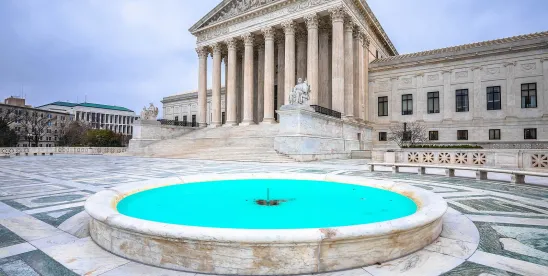In Bouarfa v. Mayorkas, No. 23-583 (Dec. 10, 2024), the U.S. Supreme Court unanimously held that federal courts do not have jurisdiction to review a petition revocation by U.S. Citizenship and Immigration Services (USCIS) because revocations are discretionary agency decisions and, therefore, are not subject to judicial review.
In this case, USCIS had initially approved a marriage-based I-130 petition, but later revoked the petition on the grounds that the beneficiary had engaged in marriage fraud with his ex-spouse several years earlier for the purpose of conveying an immigration benefit, thereby barring the approval of the subsequent petition.
After an unsuccessful appeal to the Board of Immigration Appeals, the petitioner filed a complaint in federal district court, then appealed to the U.S. Court of Appeals for the Eleventh Circuit, and then to the U.S. Supreme Court. The petitioner’s primary argument was that because federal courts have the jurisdiction to review petition denials, the courts should similarly have the jurisdiction to review petition revocations.
However, the Supreme Court found otherwise and affirmed the Eleventh Circuit’s decision that federal courts lack jurisdiction to review USCIS revocations as they are discretionary agency decisions. The court held that “Congress granted the Secretary broad authority to revoke an approved visa petition” at any time, “for what he deems to be good and sufficient cause.” The court found that revocation under 8 USC § 1155 qualifies as a decision “in the discretion of” the Secretary such that it falls under a separate statute which strips federal courts of jurisdiction to review certain discretionary actions.
It should be noted that this decision applies only to petition revocations and does not preclude federal judicial review of petition denials. Furthermore, a petitioner may still seek review of a petition revocation through agency appeals or motions within the USCIS Administrative Appeals Office or Board of Immigration Appeals.



 />i
/>i

